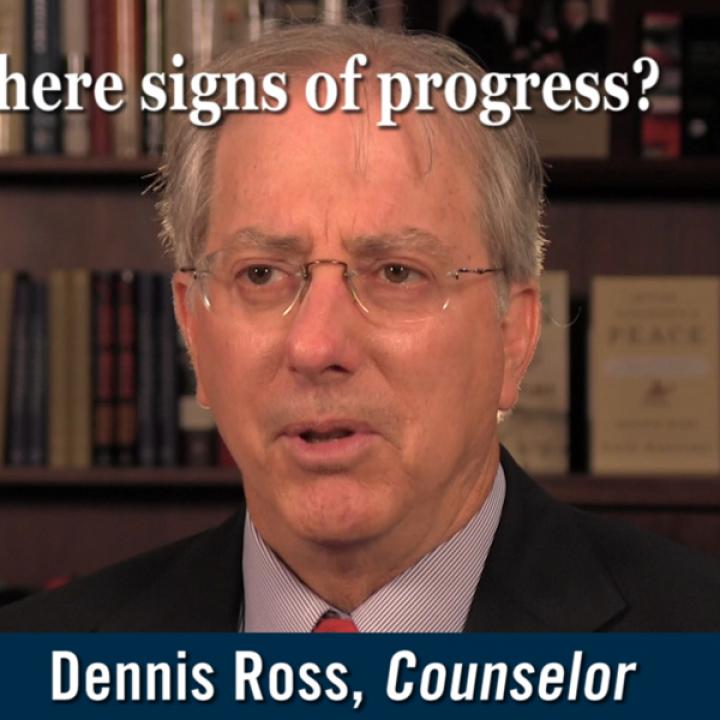
- Policy Analysis
- Interviews and Presentations
Middle East Peace Talks Resume: Lessons from the First Round

Veteran U.S. peace negotiator and Institute Counselor Dennis Ross offers suggestions for changes to Israeli-Palestinian peace talks, including increased public outreach and a reordering of priorities. Watch a video FAQ in which Ambassador Ross tackles the key questions to emerge from the first round of talks.
Download a transcript (PDF) of this video
In this video FAQ, Washington Institute Counselor and former U.S. Middle East envoy Dennis Ross answers four key questions raised by the first round of renewed Israeli-Palestinian peace talks.
- What can we determine about the progress of talks from the atmospherics around them?
- What steps can the parties take to improve the chances of success?
- What is the U.S. role in negotiations at this point?
- How have developments in Egypt changed the picture for negotiators?
Israelis and Palestinians should increase their public efforts to build mutual trust in order to improve the chances for success during the current round of negotiations. "If you're going to show to the respective publics that something is different this time, there needs to be a different kind of public communication between the two sides, even if they're protecting the content of the talks." The parties should pursue parallel steps such as Israelis opening Area C to economic activity and Palestinians acknowledging the historic Jewish connection to the land of Israel.
Negotiators could advance the talks by addressing territorial questions now by trying to define the meaning of "settlement blocs." "There's presumably always been a sense that there is a relationship between borders and security ... but it may not be the place to start," Ross says. "The place to get at those two issues might be to come to a common definition of 'blocs.'"
Though the peace talks are primarily bilateral, U.S. negotiator Amb. Martin Indyk is fully briefed on the proceedings and holds three-way meetings on occasion. The U.S. role is "more limited to begin with, but may be more substantive over time."
The peace talks occurred against the background of turmoil in Egypt where Muhammad Morsi was deposed as president and his Muslim Brotherhood group was systematically dismantled. The Muslim Brotherhood's loss may boost Palestinians' confidence in their ability to negotiate freely by eliminating a force that "fundamentally rejects the idea of peace with Israel."
In response to a question posed through the Institute Facebook page, Ross said that one cannot prioritize "security" over "peace or "peace" over "security" because the two issues are interconnected. Watch that response below.
Institute counselor Dennis Ross has been a participant in the Arab-Israeli peace process throughout his 30-year career in diplomacy as a top advisor to presidents and secretaries of state.

